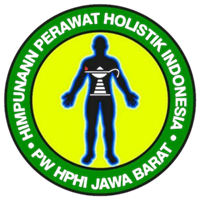The Effect of E-FAS on the Knowledge of Post-partum
DOI:
https://doi.org/10.56359/gj.v4i2.284Keywords:
E-FAS, Knowledge, postpartum, breast feedingAbstract
Introduction: The postpartum period is a period of recovery of the uterine organs as before pregnancy, the recovery time is around 6-8 weeks. Physical and mental changes will experience different changes that can disrupt daily activities. Several types of complications that may occur include physical, mental and emotional problems, for example fatigue, decreased sexual relations, anxiety, constipation, breastfeeding problems, sleep disorders, bleeding and difficulty urinating.
Objective: The aim of this research was to determine the effect of E-FAS on the knowledge of postpartum mothers at the Khasanah Panumbangan Clinic.
Method: This research design uses the Quasy experimental method with pretest and posttest. This research design takes the form of a non-equivalent control group design. The research subjects were 30 postpartum mothers at the Khasanah Clinic, Panumbangan District, Ciamis Regency. This research instrument uses a questionnaire to determine the knowledge of postpartum mothers. Data analysis used the Wilcoxon Test to see the effect of E-FAS on increasing the knowledge of postpartum mothers.
Result: the results of statistical analysis with an average ranking value of 10.50 while the number of positive rankings or sum of rank was 210. There were 10 people with the same score before being given E FAS and after being given E FAS. The Wilcoxon test obtained a p value of 0.000 (<0.005) so it can be concluded that there is an influence of E FAS on the knowledge of postpartum mothers at the Khasanah Clinic, Panumbangan District.
Conclusion: E-FAS can be used as a medium for health information, especially in midwifery care after childbirth and breastfeeding.
Downloads
References
Anggraini, Y. (2010). Asuhan Kebidanan Masa Nifas. Pustaka Rihama.
Asiodu, I.V., Waters, C.M.,Dailey, D.E.,Lee,K.A.,&Lyndon, A. (44M). Breastfeesing and use of social media among first-time African American Mothers. Journal of Obstetric, Gynecologic & Neonatal Nursing, 2, 268–278.
Dewi, Y. V. . (2020). Buku Ajar Asuhan Kebidanan 3 (Media Sain).
Herlina, S. G. Y. S. O. . (2013). Keefektifan SMS Reminder Sebagai Media Promosi Kesehatan Ibu Hamil di Daerah Terpencil. SNIMED, IV, 32–38.
Idris, E. (2019). Pengaruh Penyuluhan Menggunakan Audio Visual Tentang ASI Ekslusif terhadap Pengetahuan dan Sikap Ibu Hamil. Jurnal Bidan Cerdas, 1(2), 51–58.
Putri, N. A., & Hilmanto, Dany, Z. (2021). Effect of Mommy Nifas Application to Increase Knowledge and Skill of Mother. Jurnal Kesehatan, 12(1), 139–146.
Sagita Eldawati. (2015). Hubungan Pengetahuan Dan Sikap Ibu Nifas Dengan Praktik Perawatan Masa Nifas Di Kecamatan Gunung Pati Kota Semarang. Jurnal Kesmas, 3(3).
Shiferaw, S.,Spigt, M., Tekie, M.,Abdullah M.,Fantahun, MM.,& Dinant, G. . (2016). The Efffects of a locally developed m Health Intervention on delivery and postnatal care utilization; a prospective controlled evaluation among health centres in Ethiopia. PloS One, 11(7).
Suparwedi, W. (2018). Data Pengguna Aktif Smartphone Di Indonesia. http://www.neraca.co.id/article/98769/.
Wawan A, D. M. (2010). Teori & Pengukuran Pengetahuan, Sikap, dan Perilaku Manusia. Nuha Medika.
Downloads
Published
How to Cite
Issue
Section
License
Copyright (c) 2023 Rosidah Solihah, Ayu Endang Purwati, Sri Utami Asmarani

This work is licensed under a Creative Commons Attribution 4.0 International License.















